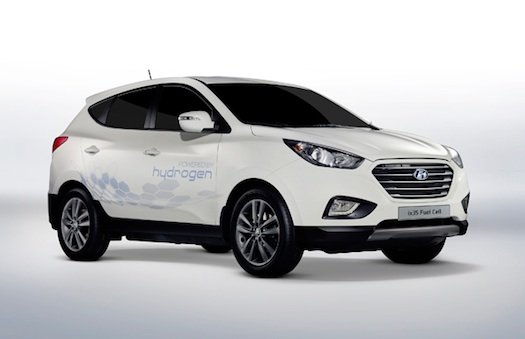
'Greenest Automaker' Gets $100 Million Federal Fine (Op-Ed)

Get the world’s most fascinating discoveries delivered straight to your inbox.
You are now subscribed
Your newsletter sign-up was successful
Want to add more newsletters?

Delivered Daily
Daily Newsletter
Sign up for the latest discoveries, groundbreaking research and fascinating breakthroughs that impact you and the wider world direct to your inbox.

Once a week
Life's Little Mysteries
Feed your curiosity with an exclusive mystery every week, solved with science and delivered direct to your inbox before it's seen anywhere else.

Once a week
How It Works
Sign up to our free science & technology newsletter for your weekly fix of fascinating articles, quick quizzes, amazing images, and more

Delivered daily
Space.com Newsletter
Breaking space news, the latest updates on rocket launches, skywatching events and more!

Once a month
Watch This Space
Sign up to our monthly entertainment newsletter to keep up with all our coverage of the latest sci-fi and space movies, tv shows, games and books.

Once a week
Night Sky This Week
Discover this week's must-see night sky events, moon phases, and stunning astrophotos. Sign up for our skywatching newsletter and explore the universe with us!
Join the club
Get full access to premium articles, exclusive features and a growing list of member rewards.
Seth Shulman is a senior staff writer at the Union of Concerned Scientists, a veteran science journalist and author of six books. This op-ed, and Shulman's other Got Science? Columns, can be found on the UCS website. Shulman contributed this article to Live Science's Expert Voices: Op-Ed & Insights.
Can consumers trust companies' information about their products? That's the critical question raised by the U.S. government announcement this week that the Hyundai Motor Group, makers of Hyundai and Kia cars, would pay a record $100 million penalty for submitting inaccurate fuel economy and emissions data on their vehicles.
Hyundai and Kia, it turns out, submitted data to the U.S. Environmental Protection Agency (EPA) that overstated the fuel economy on some 1.2 million of their 2011, 2012 and 2013 cars by one to six miles per gallon, depending on the model. Similarly, they understated the global warming emissions of their fleets by some 4.75 million metric tons over the estimated lifetime of the vehicles. According to the EPA, that's equivalent to the emissions produced by power plants generating electricity for more than 400,000 homes for a year.
Corporate "counterfeit science”?
While Hyundai has apologized, it admits only to "procedural errors" in testing in the settlement of the case. But the facts presented by the EPA — and the size of the penalty — speak for themselves. Hyundai cherry-picked the data to submit numbers that made their cars seem greener and more fuel-efficient than they actually were. At the same time, the company heavily advertised about its cars' fuel economy and built its brand, in part, by attracting Americans interested in saving money on gas and lowering their emissions. [The Problem of False Balance in Science Reporting ]
More importantly, though, Hyundai's inflated numbers follow an all-too familiar pattern of companies distorting or suppressing facts about their products. The auto industry has seen a lot of such behavior recently, from GM's efforts to sweep its deadly ignition switch under the rug to more recent allegations that Honda failed to disclose known defects in the Takata airbags found in many of today's car models.
But other fields are at least as rife with corporate counterfeit science, from the sugar industry's well-documented efforts to misrepresent the science about the adverse health effects of its product to the ongoing disinformation campaign underwritten by many fossil fuel companies to distort the truth about climate science and renewable energy.
Get the world’s most fascinating discoveries delivered straight to your inbox.
The irony and the tragedy
One irony in Hyundai's case is that the UCS selected the company earlier this year as the 2014 "greenest automaker." Dave Cooke, a vehicles analyst at UCS, explained that the data used by UCS in the determination all came after Hyundai had corrected its erroneous submissions which were first disclosed by EPA in November 2012.
In other words, Hyundai earned the designation fairly with an overall fleet that actually does have the best fuel economy in the industry. Still, Cooke says, that doesn't excuse submitting inflated numbers to the government. "It's crucial that consumers have access to accurate information. The real tragedy here is that this kind of incident erodes public confidence in the process.”
Real-world complaints
Hyundai's misrepresentations were uncovered by the EPA back in 2012 in audits commissioned after consumer complaints by owners of Hyundai and Kia cars when their real-world miles per gallon were significantly less than advertised on those government-certified stickers in the showroom.
In November 2012, Hyundai responded to EPA's findings by correcting the fuel economy ratings and establishing a reimbursement program to compensate owners for the increased fuel costs they incurred due to the overstated numbers.
Now, with the recent penalty, EPA is not only levying the largest-ever fine for a violation of the Clean Air Act , but the Hyundai Motor Group will have to reform its procedures at its Korean test facility as well as arrange for a separate team to independently audit its vehicles in the United States at an estimated cost of $50 million. The company will also forfeit emission credits technically worth upwards of $200 million. As Cooke noted, while the fine amounts to only about $100 per vehicle, EPA's action "definitely sends an important message" to automakers that the agency will insist upon accurate information in its fuel economy and emissions ratings.
Need for independent oversight
The Hyundai case, like so many others, underscores the importance of government oversight in the automotive field, and elsewhere.
In today's polarized political climate, with many voices calling for shrinking the federal government, it's important to remember the extent to which Americans rely on the integrity of the scientific data used in reporting and upon the independent analysis of government scientists and inspectors to ensure the safety of everything from our food and drugs to our nearby nuclear power plants.
The EPA deserves credit in this case, both for investigating this case and levying a record penalty.
As EPA Administrator Gina McCarthy rightly explained, the settlement upholds the integrity of the nation's fuel economy and emissions programs and supports all Americans who want to save fuel costs and reduce their environmental impact. As McCarthy put it: "Businesses that play by the rules shouldn't have to compete with those breaking the law.”
Follow all of the Expert Voices issues and debates — and become part of the discussion — on Facebook, Twitter and Google+. The views expressed are those of the author and do not necessarily reflect the views of the publisher. This version of the article was originally published on Live Science.
 Live Science Plus
Live Science Plus











